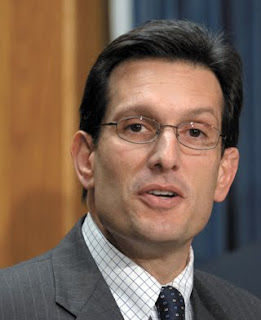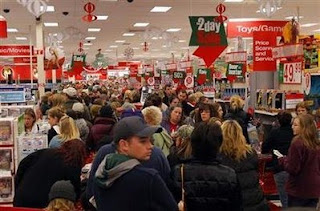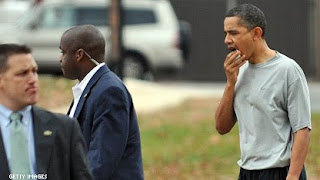
This is what an anti-rape/rape awareness campaign should look like. This is SO much better than those horrific, triggering, titillating, victim-blaming ads that Tfl have only very recently taken down. Here some of the regressive, sexist ideas that I got from the last Tfl campaign:
a. It is a woman's responsibility not to get raped.
b. If you have been in an illegal minicab, worn revealing clothing, had a drink, flirted, spoken to someone, walked home alone, kissed someone, walked home in the dark, walked home with female friends, been outside with female friends, danced in a club, been inside with your windows open, failed to fight back enough, passed out in your friend or boyfriend's bed, fallen asleep generally, not shouted 'no!' repeatedly, loudly and clearly enough when someone is trying to rape you, AND SO ON AND SO ON AND SO ON you are in some way responsible or to blame for the fact that someone has raped you.
c. There will always be rapists because rape is a natural male urge, therefore anti-rape campaigns should just be damage limitation.
The point is, no matter how many precautions you take, you may still get raped. The point is, men face no such restrictions on their movements. As long as there are still rapists, there will still be rape survivors. As long as advertising solely urges women to take precautions, there will still be a world of ignorance out there, in women and men, about what is and isn't rape. So, you know, maybe the London authorities could allocate just one of their campaigns to raising awareness about what rape actually is? So that when a woman, having taken all other precautions on all the other days of her life HEINOUSLY SLIPS UP AND HAS ONE TOO MANY DRINKS, the person who may otherwise have committed rape, thinks about it and does not do so?
Here are three counterarguments to what I've just said. First, there will always be rapists so it is unrealistic to expect advertising to stop rape. Second, 'women-take-precautions!' adverts do something concrete to help so it is counterproductive to argue against them. Third, we don't campaign against other crimes by asking people not to commit them, i.e. a campaign saying 'don't murder' would be ludicrous.
I find the third the most immediately convincing of these counterarguments, and certainly its the one I've seen most used on internet forums and other places where such issues get discussed by calm, rational people. But the problem with it, as an argument goes, is that it fails to take into account just how much confusion there is surrounding rape. Like, killing is killing. If you kill someone you are a murderer, unless you are in some way legally less responsible, in which case it is manslaughter, which is also a very serious crime. Nobody thinks it is not real killing if you get killed by your partner. The only way you might be in some sense responsible for your own murder is if you have a history of violence against the person that kills you. If you walk home by yourself it's not your fault if you get killed. There might be other issues to discuss, but it is still killing. Rape is a different story. So many people, myself included, are unsure, in some cases, about whether what has happened is rape or isn't rape.
The recent 'Wake Up To Rape' (I think it's an unfortunate title, but hey) survey run by The Havens, based on a random sample of 1061 people in London, found that:
-Close to one in five respondents agree with the statement, "most claims of rape are probably not true" (18%)
-Close to one in five respondents do not know whether in a committed relationship it is rape when a man makes their partner have sex when they don't want to (18%)
-One in ten do not believe it is rape when a man makes their partner have sex when they don't want to (10%)
-20% of people have been made to have sex when they didn't want to.
Even taking into account a possible bias either way from the kinds of people who respond to rape surveys, I think some of these statistics might be related? Here's a feasible argument: if quite a large percentage of people are unsure what is and isn't rape, some people are committing rape through ignorance rather than willful criminality. Isn't it possible that some people may be stopped from raping if they know that what they are doing is a crime?
Let's talk about the second of the counterarguments, that if this kind of advertising stops even one person from being raped, it's doing its job and therefore, to campaign for removal is ridiculous. To some extent, this argument has a point. Of course it is better to have advertising that helps even slightly than nothing at all. But neither is it right to be entirely uncritical about what there is. When what there is could be improved, why not improve it? I do not frankly believe that there could be many women who have not been told repeatedly all their lives not to take endless, onerous security measures. I can't walk home by myself without hearing my mother's 'I don't like you out alone at night, it's not safe. Don't wear that skirt. Be careful not to drink too much.' voice resounding around my head. I don't think there is really a lack of awareness amongst women about staying safe, but there definitely is a lack of awareness among people about what consent is, what consent isn't, and about in what situations sex is rape. I will continue to contend for as long as it takes to anyone who will listen that it is in no way necessary or good to have anti-rape advertising that is so very distressing to both rape survivors and non-rape survivors (I MEAN, WHY ARE WE LOOKING AT THE WOMAN FROM THE PERSPECTIVE OF THE RAPIST IF THE AD IS TARGETING POTENTIAL ATTACKEES?! Talk about male gaze!). The same point can be made in a million different, almost invariably better ways. The Tfl campaign was made with little to no collaboration with women's groups who, you know, work on this stuff for a living. The new one, which has just gone up, is a little better if just less graphically traumatising, but still doesn't really hit the mark in the way that 'Don't be that guy' does. If it is felt that a safety based campaign is necessary, why not couple it with one like the Canadian one featured above? Its not like there could be too many.
Last, the first counterargument, that it's unrealistic to expect advertising to stop rape. I've pretty much answered this already anyway. It's hugely patronising to men to suggest that rape on such a large scale is inevitable. We can, at the very least, reduce occurrence of rape to roughly the same occurrence as most other crimes.
Back to the Canadian campaign. Its not just that it places the onus squarely where it belongs, on those who may not know what constitutes rape or who may otherwise feel tempted to rape. It also makes clear that those men who become rapists are not, generally, psychopaths or lurking-behind-bushes-weirdos, rather, rapists are everyday men who for whatever reason (pick some: they don't think its rape, lack of awareness/understanding/empathy, patriarchy, dehumanisation of women, misogyny, participation in culture that blames women for rape, internalisation of raunch culture ideals about female sexuality, fallout from society that demonizes women for saying yes or no or nothing, etc etc etc) choose to exercise unwanted power over a woman, man or queer against their will.
I'll leave you with a really great comment I saw on a facebook group called 'Please please stop victim blaming on the London Underground', from a person called Kay Ri, who I hope won't mind me reproducing it here:
"Incidentally, when a thief is found with his hands full of stolen Christmas gifts, legal professionals tend not to conjecture that the theft was a willing donation.
"But Mr. Smith, you give to charity all the time-are you sure you didn't just make a big donation and then regret it the next morning?"
"You say that they were Christmas presents Mr. Smith; is it not true that Christmas is a time of giving? And yet you *claim* they were stolen...""
And finally finally, here are some other good links on this:
-Sexual Assault Prevention Tips That Work
-But Why Shouldn't She Take Some Responsibility Too For The Rape?
























